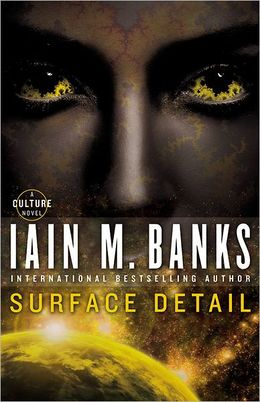Iain Banks’ Culture novels are modern classics and should be required reading for anybody who likes science fiction. No, scratch that, for anybody, period. I see hand-wringing articles all the time about how science fiction has become the domain of anti-science fear-mongering and dystopian fiction. Well! Iain M. Banks writes the heck out of utopian sci-fi, and he does it with a wink in the face of nihilism, and it is wonderful.
Let’s just take a moment to appreciate The Culture, because The Culture, and Iain Banks, are fantastic.
What is The Culture? There are two comparisons that I think really explain it. The Culture is like Star Trek’s Federation, flipped on its head. A hyper-advanced post-scarcity, post-Singularity human civilization. An anarchist collective that just works, where you can get anything you want, do anything you want. Tooling around the galaxy in spaceships with billions of people on them, run by the Minds. The Minds are…well, the post-Singularity bit. Humans build an AI and then that AI builds a better AI, and then lather, rinse, repeat until the super-sentient computers are building their circuits in hyperspace because the speed of light was getting to be a drag on their processing power.
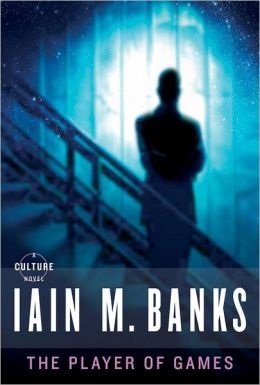 How is it like The Federation, you ask? Oh, simple! They’ve got the Prime Directive, only turned inside out to make it their obligation to meddle with other societies. After all, when you have a post-scarcity techno-utopia, why would you let some planet of aliens linger in their “nasty, brutish and short” phase? So Contact was born. Contact’s job is to introduce cultural ideas like freedom and responsibility, and introduce technology and new inventions without causing more problems than they solve. Mentorship, on a massive, species-wide scale. Most of Banks’ Culture novels involve a sub-set of Contact, called Special Circumstances, because sometimes you can’t make an omelet without breaking a few eggs. By which I mean you might have to undermine an oppressive political system, or assassinate a genocidal space alien Hitler, or get your civilization’s greatest gambler to play high-stakes poker.
How is it like The Federation, you ask? Oh, simple! They’ve got the Prime Directive, only turned inside out to make it their obligation to meddle with other societies. After all, when you have a post-scarcity techno-utopia, why would you let some planet of aliens linger in their “nasty, brutish and short” phase? So Contact was born. Contact’s job is to introduce cultural ideas like freedom and responsibility, and introduce technology and new inventions without causing more problems than they solve. Mentorship, on a massive, species-wide scale. Most of Banks’ Culture novels involve a sub-set of Contact, called Special Circumstances, because sometimes you can’t make an omelet without breaking a few eggs. By which I mean you might have to undermine an oppressive political system, or assassinate a genocidal space alien Hitler, or get your civilization’s greatest gambler to play high-stakes poker.
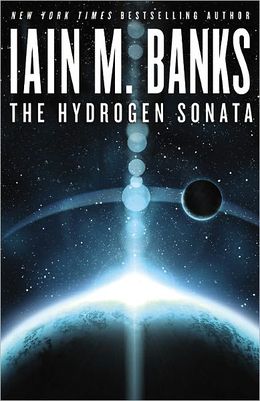 The other comparison I like to make is that The Culture is what would happen if you took Douglas Adams’ Hitchhiker’s Guide to the Galaxy completely seriously. The Minds are really what sell this angle. The Minds’ attitudes show up in their names—Minds often being housed in ships—with monikers like Just Read The Instructions or We Haven’t Met But You’re A Great Fan Of Mine and warships with names like Falling Outside The Normal Moral Constraints and my personal favorite, Trade Surplus. They have a sublime sense of humor that can verge on the completely deranged, and the whole Culture really hangs on their fundamental benevolence. When asked in Science Fiction Weekly “…their outrageous names, their dangerous senses of humour. Is this what gods would actually be like?” Banks answered, “If we’re lucky.”
The other comparison I like to make is that The Culture is what would happen if you took Douglas Adams’ Hitchhiker’s Guide to the Galaxy completely seriously. The Minds are really what sell this angle. The Minds’ attitudes show up in their names—Minds often being housed in ships—with monikers like Just Read The Instructions or We Haven’t Met But You’re A Great Fan Of Mine and warships with names like Falling Outside The Normal Moral Constraints and my personal favorite, Trade Surplus. They have a sublime sense of humor that can verge on the completely deranged, and the whole Culture really hangs on their fundamental benevolence. When asked in Science Fiction Weekly “…their outrageous names, their dangerous senses of humour. Is this what gods would actually be like?” Banks answered, “If we’re lucky.”
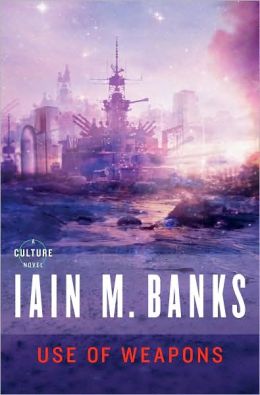 The thing is, for all of Banks’ spectacular robots and spaceships, his stories are about people and big ideas, in different doses. Use of Weapons, for instance, is a character portrait of a man struggling with a dark past and his unfortunate talent for being a great war hero, while Surface Detail is about… the ethics of Hell? Or video games? By which I mean virtual simulations, and at what point having a simulation full of people being tortured and killed forever is an evil act. I should also point out that Surface Detail had me literally doing the proverbial “laugh out loud” while riding on a crowded train, on many occasions. The Hydrogen Sonata is about a culture just on the cusp of post-post-Singularity, on the edge of post-reality, but even that big notion is tempered by the fact that it is really about a woman trying to figure her own stuff, and some heady cosmological stuff, out.
The thing is, for all of Banks’ spectacular robots and spaceships, his stories are about people and big ideas, in different doses. Use of Weapons, for instance, is a character portrait of a man struggling with a dark past and his unfortunate talent for being a great war hero, while Surface Detail is about… the ethics of Hell? Or video games? By which I mean virtual simulations, and at what point having a simulation full of people being tortured and killed forever is an evil act. I should also point out that Surface Detail had me literally doing the proverbial “laugh out loud” while riding on a crowded train, on many occasions. The Hydrogen Sonata is about a culture just on the cusp of post-post-Singularity, on the edge of post-reality, but even that big notion is tempered by the fact that it is really about a woman trying to figure her own stuff, and some heady cosmological stuff, out.
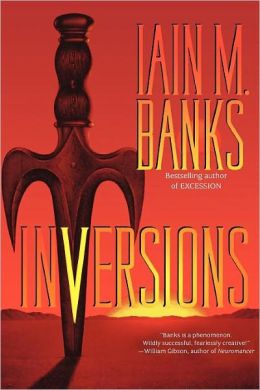 When you start to get the feel of just what makes The Culture tick, he mixes it up. Excession is about what happens when The Minds encounter the monolith from 2001: A Space Odyssey, basically. Heck, the very first Culture novel, Consider Phlebas, is about a guy who hates The Culture! Inversions is what it might look like if Iain Banks wrote a George R.R. Martin style fantasy novel, but all along Varys and Melisandre were actually members of a super-advanced alien civilization, trying to guide Westeros out of feudal shenanigans. The one I always recommend people start with, though, is The Player of Games. The brief aside about pronouns in English and how he’s going to use “he” for the “third gender” aliens because they have an oppressive hierarchy and hey, English has an oppressive patriarchal syntax built right into it—magnificent.
When you start to get the feel of just what makes The Culture tick, he mixes it up. Excession is about what happens when The Minds encounter the monolith from 2001: A Space Odyssey, basically. Heck, the very first Culture novel, Consider Phlebas, is about a guy who hates The Culture! Inversions is what it might look like if Iain Banks wrote a George R.R. Martin style fantasy novel, but all along Varys and Melisandre were actually members of a super-advanced alien civilization, trying to guide Westeros out of feudal shenanigans. The one I always recommend people start with, though, is The Player of Games. The brief aside about pronouns in English and how he’s going to use “he” for the “third gender” aliens because they have an oppressive hierarchy and hey, English has an oppressive patriarchal syntax built right into it—magnificent.
Banks has teeth. Just because they are stories about a utopia doesn’t mean that the stories he tells are conflict-free. They are rough and often tragic, because that is how life is. His universe is a cold and uncaring one…but that just highlights how important it is for people not to be. It is a good lesson in rational ethics. So thanks, Sun-Earther Iain El-Bonko Banks of North Queensferry. These Culture books are really fantastic.
The Culture novels are published by Orbit.
This article originally appeared April 2013 on Tor.com
Mordicai Knode thinks that remembering how awesome Iain M. Banks’ books are is the best way he can give his thanks.










